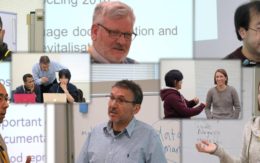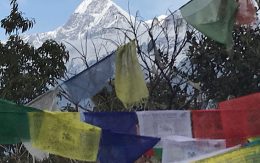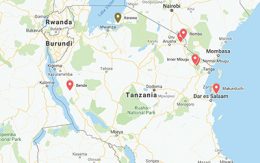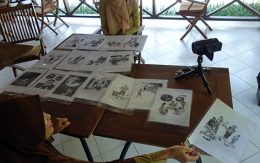Activities
Date:2014.02.19[Wed]- 02.25[Tue]
DocLing 2014: Documentary Linguistics Workshop focusing on working with native speaker linguists and resource development.
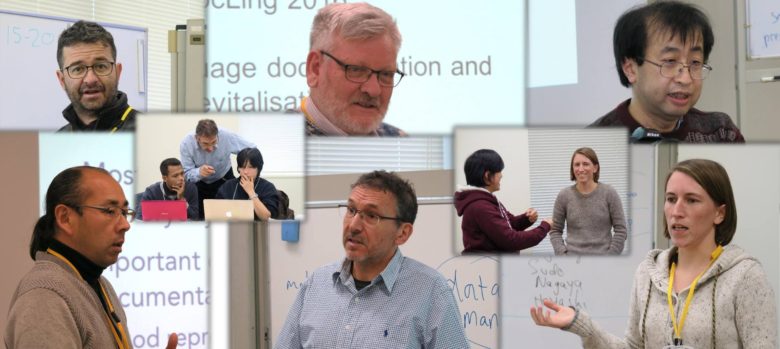
This workshop is an opportunity for field linguistic researchers to receive basic training in language documentation research. It aims to provide methodological and technical training in various aspects of language documentation and archiving of endangered/minority languages.
Language documentation research aims to systematically and comprehensively accumulate raw linguistic data of individual languages. What makes it different from a traditional descriptive approach is that its interest centers on the data itself. Audio and video materials obtained through fieldwork can be used not only for linguistic study in a narrow sense, but also may serve as data for research in various fields, language revitalization activities and so forth. The workshop focuses on the potential value of the raw data and considers how to enhance its quality and usability.
The following topics are planned to be covered this year:
- what is “language documentation”?
- what is “language archiving”?
- how to maximise the quality of recording audio and video data (choice of recording equipment and techniques)
- data management (processing and assigning metadata)
- data mobilization
- archiving
- photography in language documentation
- fieldwork issues
- documenting conversations
Date/Time
19 (Wed.)–25 (Tue.), February 2014, 10:00–17:00
Venue
Research Institute for Languages and Cultures of Asia and Africa, Tokyo University of Foreign Studies
Lecturers
- Peter Austin (SOAS, University of London)
- Anthony Jukes (CRLD, La Trobe University)
- Sonja Riesberg (University of Cologne)
- Toshihide Nakayama (ILCAA, Tokyo University of Foreign Studies)
- Hideo Sawada (ILCAA, Tokyo University of Foreign Studies)
Unfortunately, Mr. David Nathan is unable to come to Japan this time.
Native Speaker Consultants
- Apriyani Arilaha [speaker of Manokwari dialect of Malay (Austronesian)], Center for Endangered Languages Documentation (CELD)
- Barbara Sarangnga [speaker of Toraja-Sa’dan (Austronesian)], Makassar Frater High School
- Nawipa Dance [speaker of Ekari (Trans-New Guinea)], Japanese Language Center for International Students, Tokyo University of Foreign Studies / Jaya Pura fourth High School
- Almana Mukabenova [speaker of Kalmyk (Mongolic)], Council of Europe
Program
The lectures will be from 10:00 to 17:00 every day. In the afternoon of the first day (19 Feb) a public lecture by the teaching staff is scheduled.
(18 Feb 2014)
| 10:00-11:20 | 11:40-13:00 | 14:00-15:20 | 15:40-17:00 | |
| Wed Feb 19 | Introduction to language documentation (PA) | Planning language documentation and group projects (AJ, PA, SR) | (14:00-16:00) Public lecture: Endangered Languages: Emerging Issues in Documentation, Archiving and Revitalization (PA, AJ, SR) (followed by group project discussion and setting up PCs) |
|
| Thu Feb 20 | Audio & video (AJ) | Audio & video (AJ) | Photography in documentation (HS) | Group projects design & report (groups & staff) |
| Fri Feb 21 | Fieldwork techniques & elicitation (SR) | Recording with consultants (groups) | Software for documentation – survey (PA, AJ) | Software for documentation – practical demonstration (AJ) |
| Sat Feb 22 | Data management (PA) | Data management (PA) | Documenting conversations (TN) | Multimedia & mobilisation (AJ) |
| Mon Feb 24 | Group project development (groups & staff) | Group project development (groups & staff) | Archiving (PA, SR) | Individual clinic / Group project (groups & staff) |
| Tue Feb 25 | Individual clinic / Group project (groups & staff) | Group project finalisation (groups & staff) | Group project presentation (groups) | Project presentations (groups), Wrap-up (all) |
PA:Peter Austin, AJ:Anthony Jukes, SR:Sonja Riesberg, TN:Toshihide Nakayama, HS:Hideo Sawada
Information for Participants
- Participants are expected to attend the whole program (a certificate of completion will be issued at the end of the workshop). If you have any questions, please contact us (lingdy-office@aacore.net) for more information.
- Participants are encouraged to bring their laptop Windows PC and recording equipment for the workshop.
- On the first day (19 Feb) please come to ILCAA (Research Institute for Languages and Cultures of Asia and Africa) by 9:30. See the access guide.
- The reading materials are here (The password is in the email sent from us (lingdy-office@aacore.net) on 5 February).

